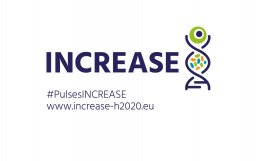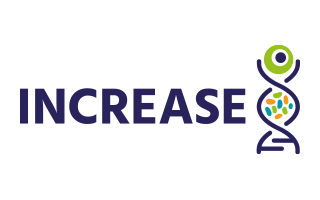INCREASE – Intelligent Collections of Food Legumes Genetic Resources for European Agrofood Systems
Participatory research approach to characterise genetic resources in food legumes
28 international partners from 14 different countries are launching the new EU research project INCREASE with a virtual kick-off meeting today. Looking into the status of plant genetic resources of four important traditional European food legumes (chickpea, common bean, lentil and lupin), the consortium aims to develop efficient and effective conservation tools and methods to foster agricultural biodiversity in Europe. For a period of five years, the project will receive a budget of EUR 7 million from the European Union’s Horizon 2020 research and innovation programme.
The conservation and valorisation of food legume genetic resources, and their utilisation in European agriculture form the core development of both more sustainable agriculture and healthier food products. Indeed, in 2019 the IPCC report titled “Climate Change and Land” (https://www.ipcc.ch/report/srccl/) indicated that the transition to novel plant-based diets could “present major opportunities for adaptation and mitigation while generating significant co-benefits in terms of human health”. Human plant protein intake is on the rise in many EU regions and the market for meat and dairy alternatives is undergoing annual growth rates of 14% and 11% respectively. In order to face the increasing demand for innovative products and comply with the citizens’ demands for healthy and environmentally friendly food, novel varieties are needed and existing genetic resources in crop breeding must be properly exploited. However, especially in the field of food legumes, breeding investment and research have been modest, leading to a largely unexplored genetic potential of these important staple food crops.
This is where INCREASE intends to systematically address current shortcomings: Focusing on chickpea, common bean, lentil and lupin, the project will implement a new approach to conserve, manage and characterise genetic resources leading to benefits on different levels. It promises to attract additional private and public investment to boost food legumes breeding. Furthermore, the availability and access to well-described and well-managed collections of genetic resources capturing the full range of species is of crucial importance for reaching a competitive level regarding agronomic performance and sustainability in the EU.
INCREASE will combine cutting-edge approaches in plant genetics and genomics, high throughput phenotyping, including molecular phenotyping (e.g. transcriptomics and metabolomics), with most recent advances in information technology and artificial intelligence to boost the conservation of European crop genetic resources and promote their use and valorisation. “Indeed, utilisation of crop genetic resources is the key for their effective conservation” says Roberto Papa, Full Professor of Plant Genetics at the Marche Polytechnic University in Ancona, Italy, and Scientific Coordinator of the project. “INCREASE will involve many stakeholders including SMEs, research institutions and NGOs through a dedicated consortium of stakeholders to facilitate their integration in the project”.
“Moreover, we will test on our food legumes a completely novel framework for genetic resources conservation. This will be revolutionising the landscape of agrobiodiversity conservation promoting crop diversity for a greener Europe and on a global scale.” Prof. Papa adds.
To this end, the project aims to:
- improve the management and sharing of food legume genetic resources data through optimised databases and easily accessible tools;
- develop Intelligent Collections for the exploration of crop diversity and design innovative conservation management approaches collaboratively;
- generate new knowledge on genetic diversity, made easily available through a web-based searching and visualisation tool to identify appropriate sources of germplasm;
- develop, test and disseminate best practices for dynamic management of genetic resources across European and non-European institutions and initiatives;
- develop decentralised information technology (e.g. block chain) approaches for data sharing and germplasm conservation.
- promoting ex situ and on farm conservation involving in a participatory framework farmers, citizen and other stakeholders
INCREASE is guided by the EC principles “open science, open innovation and open to the world” and will take advantage of digital technologies to make science and innovation more collaborative and global. For this purpose, the project will test a decentralised approach to the conservation and management of genetic resources by setting up a Citizen Science Experiment. In early 2021, the project will distribute more than 1,000 different common bean landraces to European citizens and farmers to be evaluated in their field, home garden or terraces. Citizens will gain knowledge about legumes biodiversity and get actively involved in evaluation and conservation activities, as well as in sharing and exchanging seeds in a new legal framework via a specifically developed INCREASE mobile app. This is also a major innovation for the plant genetic resources community to share benefits and promote the correct use of plant genetic resources.
The interdisciplinary INCREASE consortium covers diverse expertise, including plant genomics, bioinformatics and data analysis, information technology, phenotyping and agronomy, genebanks management, germplasm conservation and sharing and biochemistry.
The Eurice team is involved in INCREASE as management and dissemination partner and contributes to the successful implementation of the project goals by supporting the consortium in all aspects of project and innovation management as well as strategic dissemination and communication activities.


